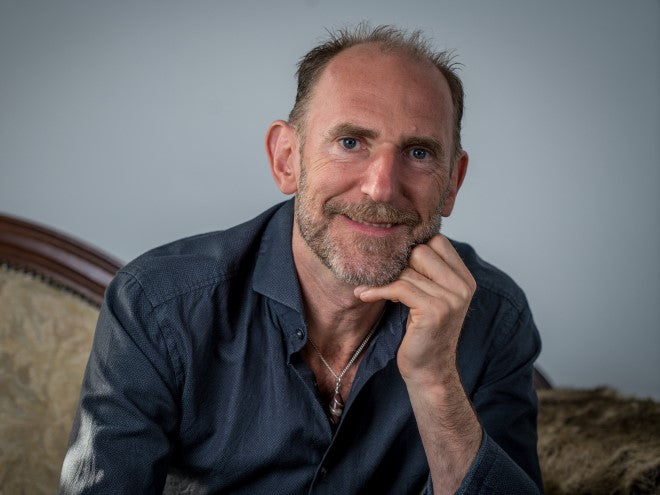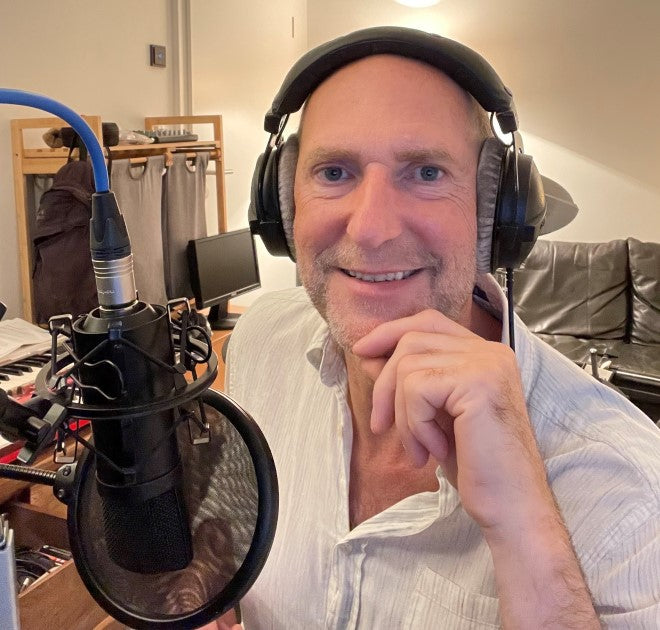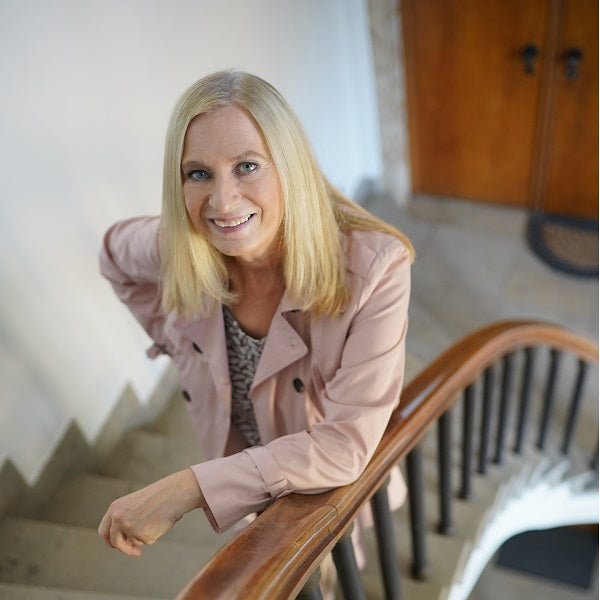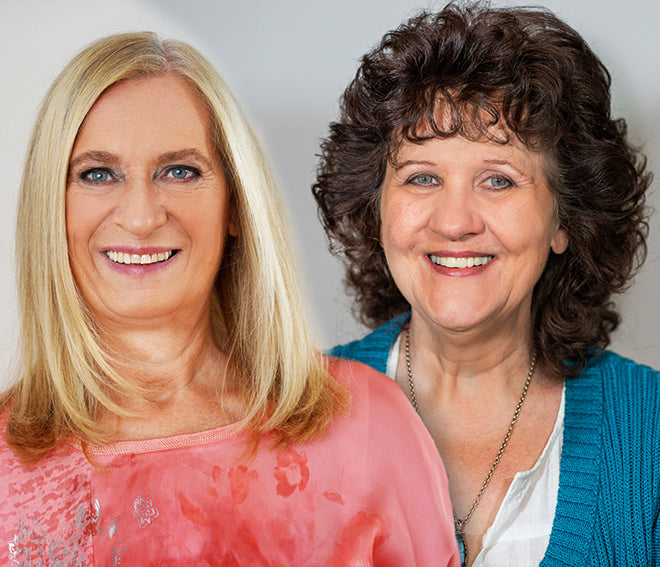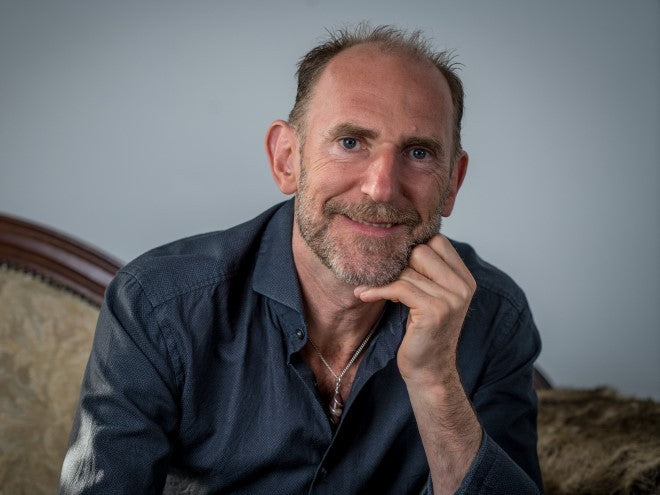
The Andreas Winter Method – an essence of over three decades of coaching practice. Interview with the qualified teacher, coach and successful author Andreas Winter
The Andreas Winter Method – an essence of over three decades of coaching practice. Interview with the qualified teacher, coach and successful author Andreas Winter
"The cause of chronic illnesses and symptoms can always be found in the first three years of life from conception. My method aims to track down these so-called microtraumatizations and prenatal conditioning using specific questioning techniques, to emotionally reinterpret them and thus render them harmless. Basically, my work is that of a knowledge mediator who explains connections to the client and supports them in critically questioning beliefs and drawing new conclusions from old experiences. Depending on the problem, often no further curative measures are necessary." The successful coach and author Andreas Winter , who has now presented his standard work with " How our psyche ticks ", wants to show in an understandable way how one can resolve complaints, illnesses and behavioral problems in an instant by simply making people aware of the actual causes and conveying the intelligent logic of a symptom - in order to help themselves or others.
With “How our psyche works” you are now presenting your standard or basic work. What can we expect from this new book and does it complete the “Andreas Winter Method”?
Andreas Winter: In this book I bring to the fore the essence of over three decades of coaching practice. Over the years it has become increasingly clear that the cause of chronic illnesses can always be found in the first three years of life after conception. No matter what a person is constantly struggling with, it has to do with perception patterns that arose at a time when people still felt largely powerless and had no rational sense of time. My method for uncovering and changing these causes is based on the fact that the causes are so-called microtraumatizations and prenatal conditioning, which can be uncovered using certain questioning techniques and then emotionally reinterpreted and rendered harmless using reframing. Completely without any other aids. It will be perfect when it is possible to have a life-changing influence on the person with the same speed, relevance and depth of impression as the person who caused the trauma once did. There is certainly still a lot of research and development to be done, and I can imagine that one day technologies such as virtual reality and artificial intelligence could be used to significantly increase the emotional impact of therapy.
You promise not only interested laypeople, but also therapists an effective tool with which they can treat any undesirable behavior. What do you understand by these blockages and disorders, and how has your approach been received by the "healing community"?
Winter: By blockages and disorders I mean any behavior and feeling that causes suffering in a person in any form. My training courses have always been attended by members of the medical profession who incorporate my approach as a supplement to their work. However, I must add that my work is not about healing or therapy at all; in this respect, there has never been a conflict with the work of a healer. I only provide the basis for effective therapy. My point of view explains why a person has become ill, why they remain ill despite attempts to heal, and what needs to be taken into account in order to help the person. Basically, my work is that of a knowledge broker who explains connections to the client and supports them in critically questioning beliefs and drawing new conclusions from old experiences. Depending on the problem, no further curative measures are often necessary if the affected organism is still capable of healing itself.
Based on your many years of coaching with over 5,000 clients, you claim that there is a certain formula that explains why people intentionally do what they do, even when it harms them and causes them great suffering. What is this hidden algorithm and how does it affect the lives of those affected?
Winter: In my opinion, we humans are very complex beings, but not particularly complicated. We are multi-layered, differentiated and very different on a certain level, but we are not difficult to understand and we all have the same aspiration, namely the realization of our own personality without resistance. This means: we all want to be who we are and not experience any psychosocial stress. To put it even more simply: we want to live our lives and be loved. Now, this is not always so easy in a civil, performance-oriented society; after all, we are brought up to control our needs and, if necessary, to hold them back. In addition, disproportionate consumer desires are aroused and competition is artificially created. Hardly anyone feels that their needs and possibilities are "right" as a human being. Greed, envy, jealousy, mistrust, fear and a reliance on authority are unfortunately completely normal characteristics of a civilized person. If this subordination to social standards becomes a permanent condition, it can put some people under a lot of stress. Stress makes people vulnerable, less productive and, as a result, ill. When we notice symptoms that something is going wrong in our lives, we usually go to a therapist, who does not always look at what exactly made us ill. The symptoms are then suppressed with curative interventions, the pattern that causes the illness continues to work and produces the next symptoms.
You say that many so-called illnesses or behavioural disorders have deep and ancient roots that go back to early childhood or even before birth. What caused them and why is it so difficult to get to the bottom of them?
Winter: In the period before birth, we are connected to the mother's bloodstream via the umbilical cord. We therefore receive not only oxygen and nutrients from her, but also all neurotransmitters. This means that what our mother feels, we also feel. And we cannot relativize it. We know nothing about a mother, although we hear her heartbeat and her voice. In addition, we have no rational sense of time during this time, so we believe that these impressions last forever. As a result, what the mother feels is neurally connected much more extensively in the unborn child than later; it is only from the third year onwards that we get a concept of time, and impressions no longer appear to us as absolute. Such causes are not difficult to discover. However, the question of how to neutralize such uncovered causes is much more challenging. You do need a certain amount of experience and expertise to help a person to realize that they are no longer a helpless, immature child and that much of what they have believed up to now is based on false assumptions.
Can you give an example of this?
Winter: Of course. For example, many arachnophobes believe that spiders are disgusting, unpredictable and dangerous insects. Those affected can be shown that their arachnophobia has nothing to do with the spider directly, but that the animal is just a symbol of a loss of control. The spider has therefore been linked to something else and now functions as a trigger. It probably reminds them of someone whose stress-inducing presence was noticed too late. However, if the analysis ended here, false beliefs would still remain. However, if the affected person also understands that spiders are neither disgusting nor belong to the insect genus, but are actually quite highly developed crustaceans that, depending on the species, even care for their young, then the phobia turns into acceptance. In such a case, not only would the fear of losing control be identified and thus treatable, but the disgust for spiders would also disappear. But to reinterpret a lifelong disgust into compassion within minutes is admittedly quite a feat. Another example: almost all obese people believe that they have to eat every day, something they learned as children. But they also think that they personally shouldn't do this because they want to lose weight. So we have a conflict between the two beliefs. With discipline, losing weight can work for a while, but only as long as you can muster enough energy to "fight" against the first sentence (which is a clear resistance to parental views as long as you don't allow yourself to critically question them). The fact is: if you don't eat anything for a few days, as in therapeutic fasting, you don't get any nutritional deficiencies. And if too much food made you fat, we would all have to be very obese, because in our culture almost everyone eats much more than the human body needs. Getting people to understand that the body only builds up fat when you don't have enough of what you ate for - in other words, isolating the actual cause and the stress-causing factors - requires expertise and persuasiveness. Decoupling the feeling of appetite from an emotional deficiency is one thing, but making the person understand that he can eat as before (but does not have to!) and still lose weight is a challenge for the therapist.
If we learn to recognize these causes, we can make a huge contribution to our well-being and even alleviate or cure chronic diseases, you promise in your book. How can this learning process be initiated and what conditions must be met for it to happen?
Winter: We cannot avoid establishing a different medical understanding first. As long as doctors answer the question of why a person has become ill with "Bad luck!", "That's just the way it is!", or "I have no idea!", we should not expect the medical layman to think of looking for causes. Especially when it comes to our health, the scientific way of thinking that assumes and examines real causal relationships would be very useful to us. However, as a society we would also have to say goodbye to the concept of the long-term patient relationship, because this prevents "healing" by only treating symptoms - which is very profitable. Another aspect is that by labeling a patient as "ill", medicine gives the patient a free pass that, on the one hand, denies them the prospect of change and, on the other hand, offers them no particular incentive to break this pattern because it absolves them of responsibility for their condition. In the general understanding of "illness", many people feel disempowered, but also excused. I therefore believe that we urgently need to return to a healthy sense of responsibility in order to avoid entrenching a general victim mentality in society. No matter what we do or don't do, we are responsible for it. We do not have it for others, and above all, no one else will take it on for us.
So-called psychosomatic disorders are now also recognized by conventional medicine, but they require a completely different therapeutic approach. What characterizes this approach, and isn't there a risk of misdiagnosis or embarrassment?
Winter: In my opinion, these embarrassing diagnoses exist because conventional medicine does not really deal with psychosomatics - but it is not responsible for that. I believe that the body and its physiological relationships have been sufficiently researched - but not what controls it. If a doctor says: "You must avoid stress, I am writing you off sick", that is unfortunately not a targeted approach to the source of stress, i.e. the cause of the illness. Of course, a break can initially bring some peace and quiet in which the patient can recover. But does rest break the basic pattern that is causing illness? The first step towards the appropriate treatment of illnesses that are actually caused by stress would be to not talk about illness when making a diagnosis, but about the effect (symptom). Then you can ask the person: "What stresses you in everyday life and why?" This question is more complex than it seems, as it leads to the cause of the pattern that is causing the illness. From there, you can then start to neutralize it using appropriate techniques and ensure that there are no more effects or symptoms that are causing illness. This also means that the physical diagnosis suddenly seems secondary and the diagnosis of the cause comes to the fore - and this is the same for everyone on a certain level: fear of losing control. It is only at the individual level that it becomes clear how a person defines their control and its loss. In this respect, I believe it is irrelevant what medical diagnosis a person has. The fact is: they are chronically stressed, cannot find a way out and sabotage bodily functions that are symbolically related to the cause of the stress. So often you only need to look: what emotional reason did you get sick?
Would you describe your method as the therapy of the future?
Winter: No, quite the opposite! I believe that ancient healers already knew that every illness and every disorder must have a cause. The fact that this cause has nothing to do with sins, God's whims or demons, but with early childhood trauma, is the only new thing that needs to be taken into account. The fact that emotions can trigger stress and stress hormones make people susceptible to illness and weaken their immune systems is nothing new. The fact that you can influence whether and how stressful something is has been known since the 1940s. Doctors knew how best to influence patients emotionally well over a hundred years ago. What influence you can have, where exactly you need to start and what you can achieve with it - I have tried to explain in my book in a way that everyone can understand - in the hope of giving people a new lever for an old tool.
Book tip:
Andreas Winter: How our psyche works. Understanding the intelligence of the subconscious. How psychosomatic symptoms and blockages arise and can be resolved. The Andreas Winter method. Mankau Verlag, 1st edition February 2024, paperback, 16.5 × 24 cm, 270 pages, 28.00 euros (D) / 28.80 euros (A), ISBN 978-3-86374-713-8
Audiobook tip:
Andreas Winter: How our psyche works. Understanding the intelligence of the subconscious. How psychosomatic symptoms and blockages arise and can be resolved. The Andreas Winter method. Mankau Verlag, 1st edition February 2024, 1 MP3 CD in a jewel case, total running time approx. 516 minutes, 8-page booklet, 18.00 euros RRP (D/A), ISBN 978-3-86374-716-9
Link recommendations:
More information about the book “How our psyche works”
To the reading sample in PDF format
More information about the audio book “How our psyche works”
More about author Andreas Winter
Our social networks − for questions, criticism, suggestions

